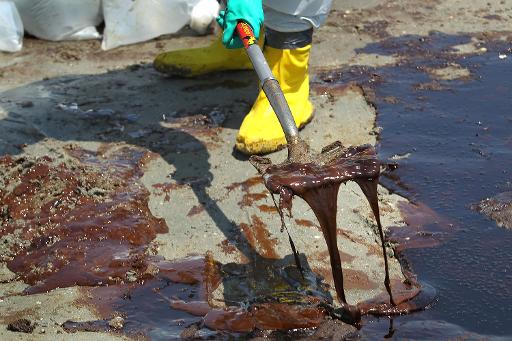
A BP cleanup crew shovels oil from a beach on May 24, 2010 at Port Fourchon, Louisiana (Getty/AFP/File, John Moore)
nytimes.com - by Clifford Krauss - March 13, 2014
HOUSTON — Four years after the Deepwater Horizon rig explosion, BP is being welcomed back to seek new oil leases in the Gulf of Mexico.
An agreement on Thursday with the Environmental Protection Agency lifts a 2012 ban that was imposed after the agency concluded that BP had not fully corrected problems that led to the well blowout in 2010 that killed 11 rig workers, spilled millions of gallons of oil and contaminated hundreds of miles of beaches. . .
. . . Under the agreement, BP will be allowed to bid for new leases as early as next Wednesday, but only as long as the company passes muster on ethics, corporate governance and safety procedures outlined by the agency.
Recent Comments